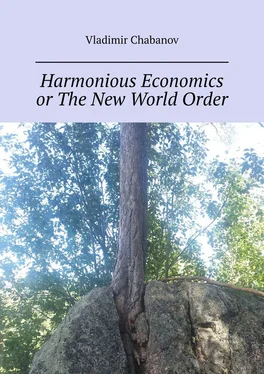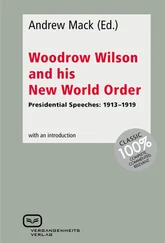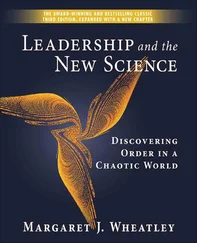Indeed, money serves as the universal key to open both minds and hearts. That is why, as M. G. Delyagin said, “ there is no problem in the world that can be solved without money, just as there is no problem in the world that money alone can solve ’ [6].
The vortex created by such “economics’ keeps devouring more countries, peoples and continents only to grind, wring out, and diffuse them. Money ruins the lives of people, nations and states, exacerbating poverty, crime rate, and terrorism. Money as it exists today is an oppressor of the authentic values: honour and conscience; truth and justice; beauty and decency; Nature, freedom, love, and the very life. “ What power has law where only money rules! ” (Gaius Petronius Arbiter, first century AD) 5 5 Cit. ex J. Pine and P. Donahue, Money and Wealth: A Book of Quotations (Courier Corporation, 2013), 15.
. All the human troubles, all wars, and all revolutions are, eventually, down to money. Moreover, the process gradually seems to become even more global and less controllable.
The clearer the direction of such development, the darker the situation. Meanwhile, money is the most visible instrument of public relations, produced by social culture and lifestyle. It is a factor formed, for the most part, by the society itself. This makes the situation unpredictable on the global scale, for it is true that by choosing a certain form of money, nations define their own future.
The absence of real value in money entails a currencies struggle, where only the currencies enjoying a strong state support can win and exert an influence. As the result, a parasitic virtual economics evolves; it allows money to bring profit without any benefits for the people, that is, circumventing the real production and goods exchange, through pure speculation, by transfer from one pocket to another.
Furthermore, the income of the virtual economy exceeds the income of the real one. That is why modern money amasses within financial entities, and not manufacturing ones. Consequently, the daily global foreign exchange operations cost reached $5.3 trillion by 2013 and currently continues rising. At the same time, the currency turnover related to goods and services transactions amounted to $55 billion only, that is less than 1% of the total amount of foreign currency transactions [7]. This brought about an unprecedented dominance of the financial market over the goods and services markets. While around $64 trillion circulate in the form of cash, bank accounts and deposits, the direct investment into production does not exceed $1.8 trillion.
On the other hand, economy based on money is inevitably usurious due to the artificial money deficit and the reign of money (obviously, the two processes are interdependent). This is no new phenomenon; it appeared a long time ago. Back then money lenders laid their hands on the major part of the lender’s profit through interest rate. Without creating new production factors, usury degraded production, helped paralyze production forces and promoted parasitic processes. It is no wonder then that economy built on usurious principles fails to be ethical or efficient. Its activity is bound to disregard the rules of common sense.
However, few are disturbed by this fact, and nowadays usury has flourished violently. It has become the basic principle of operation for modern banks, corporations, and other commercial entities. Moreover, it dominates the social and the state sectors. Usury has filled in all the pores of the current economy and has become the rudder of management and planning. The cupidity of individuals has been elevated to the level of state priorities.
That is why, if we believe the world news, it is the results of speculative stock exchange transactions that are significant, and not the economic advances. Consequently, the daily global foreign currency and financial transactions exceed fifty-fold the commerce in goods. For instance, the Russian banking system holds more than 72 trillion roubles in assets, while it invests as little as 1 trillion roubles in production. Obviously, this does not simplify nor render more efficient the economic processes.
Thanks to the global flourishing of usury, the major effort in the present economic system is employed in getting rent (derived from nature, money, property, power, information, intellectual property, the military, etc.); it is the fastest delivering and least demanding source of income, used instead of increasing human creative capabilities. Profits are generated by crime, finance, and corruption, and not through useful production. Everybody strives to create a monopoly by exterminating their competitors, and shirking fair competition. That is, the ultimate goal is profit by any means, not the improvement of the production and moral values of the society.
Consequently, it is no surprise that in the current conditions property and capital bring more profit than the use of work force. This leads to unemployment, as production improvement does not increase the workers’ free time or wellbeing, as supposed, but the number of surplus workers whose labour does not bring a third person the desired income. This could explain why as little as 32% of Americans under 25 are employed full-time, the situation that all highly developed capitalist countries suffer from. At the same time, young people are the most active society members, it will be them who will build families and educate new generations.
On the other hand, virtual economy does not produce other than virtual values. Due to this reason, its flourishing is conditioned by the servitude of the real, productive economy. The result is the reduction of the economy’s financial resources and the recent multiplication of loans. By consequence, the very notion of the money has been corrupted; money no longer serves the exchange of commodities, but has become the key source of usurious profit. The aggregate debt of all countries in the world compared to their aggregate GDP attained 286% by 2014, and developed countries contributed ¾ of this amount [8].
Such situation has led to unprecedented concentration of the capital in the hands of the few. For instance, the annual income of the 200 world’s top corporations exceed the aggregate annual income of the 1.2 billion people living in extreme poverty. The large corporations control 27.5% of the world economy while employing only 0.78% of the world population. Between 1983 and 1999 alone, their profit grew 360%, while the headcount increased by 14% only. They do not simply control economy, they set its direction – they can afford it. It is therefore no coincidence that of the 200 corporations, 82 are located in the US, 71 – in Western Europe, 41 in Japan, 5 in South Korea, and 1 in Canada. The rest of the world has none.
That is why the combined fortune of the world’s 8 richest billionaires exceeds the assets of 3.6 billion people from developing countries. Wealth-X reports that 2,473 dollar billionaires alone possess $7.7 trillion. By 1998, the top 10% in the US owned 90% of business value, 88.5% of bonds, and 89.3% of the public stock. Similar situation is observed in modern Russia and many other post-socialist countries.
On the one hand, the nouveaux riches do not need to produce as many commodities for themselves, as the rest of the population need, which inhibits the social oriented production. On the other hand, this decreases the effective demand of the population, which impedes economic development as a whole. By consequence, the demand drops further and forces supplementary cuts in production, etc.
B. G. Shaw wrote, “ If the wicked flourish and the fittest survive, Nature must be the god of rascals ’ 6 6 Cit. ex G. B. Shaw, George Bernard Shaw: Collected Articles, Lectures, Essays and Letters (e-artnow, 2015).
. However, following the liberal principles, the state must create ever more favourable conditions for the business to have a greater income. “ What is good for General Motors, is good for America ’, said W. Wilson, the President of the US. This is a cunning logic. Besides, businessmen’s “ interest is never exactly the same with that of the public so they have generally an interest to deceive and even to oppress the public ’ (Adam Smith). 7 7 Cit. ex A. Smith, The Wealth of Nations: Books I – III (Penguin Classics, 1987), Book I, Chapter IX.
For this reason the flourishing of business and the wellbeing of the society do not coincide, in fact, they often contradict each other.
Читать дальше












